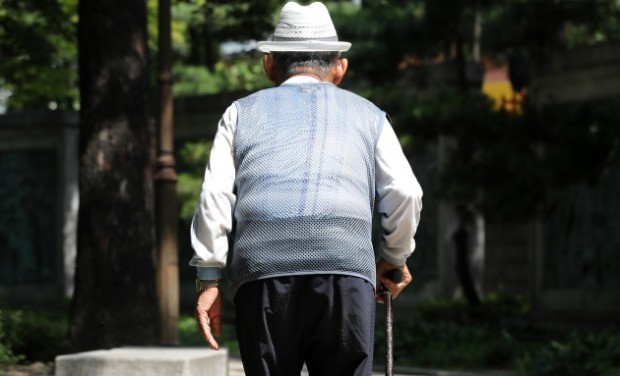S. Korea’s welfare spending to grow W40tr by 2024
By Jung Min-kyungPublished : Sept. 7, 2020 - 16:17

South Korea’s mandatory spending on welfare is projected to increase 40 trillion won ($33.6 billion) by 2024, amid growing concerns of the coronavirus pandemic and heavier tax burdens, a government budget proposal showed Monday.
Social welfare spending would gain an average 7.6 percent annually from this year to 2024, according to the Ministry of Economy and Finance’s four-year fiscal management plan submitted to the National Assembly.
Spending for this year stood at 119.7 trillion won, not taking into account the three rounds of extra budgets approved so far this year. The planned corresponding figures for 2021, 2022, 2023 and 2024 stand at 131.5 trillion won, 139.9 trillion won, 148.8 trillion won and 160.6 trillion won.
By welfare schemes, spending on national pension and pensions for civil servants, soldiers and teachers would increase by an annual average of 7.8 percent, combined, in the cited period.
Specifically, mandatory spending on the national pension scheme was projected to increase by an average 9.1 percent annually, from this year’s 26.6 trillion won to 37.7 trillion won in 2024. National pension recipients are forecast to increase by some 1.3 million to 6.9 million in four years, the document said.
Mandatory expenditures on the civil service pension scheme would gain an average of 6.3 percent annually from 17.4 trillion won this year to 22.3 trillion won in 2024. This is due to an increase of recipients, which is forecast to jump to 655,000 from 533,000 in four years.
Pension schemes for teachers and soldiers would respectively gain an annual average of 8.3 percent and 3.5 percent to 5.3 trillion won and 4 trillion won, in the same period, due to increases in recipients as well.
Spending on public education, child care, medical service and other welfare projects was to increase by an annual average of 7.8 percent to 18.5 trillion won in 2024, from this year’s 13.7 trillion won.
The government plan comes as experts and onlookers have been voicing concerns about Asia’s fourth-largest economy’s fiscal stability under pressure from the novel coronavirus. So far, the National Assembly has passed three extra budgets worth some 60 trillion won combined to minimize economic fallout from the virus.
South Korea‘s national burden ratio rose for the sixth consecutive year in 2019 to surpass 27 percent for the first time, a parliamentary report showed last week. The ratio, or the percentage of tax revenue and social security contributions to gross domestic product, came to 27.3 percent last year, up 0.6 percentage point from the previous year.
By Jung Min-kyung (mkjung@heraldcorp.com)







![[Graphic News] More Koreans say they plan long-distance trips this year](http://res.heraldm.com/phpwas/restmb_idxmake.php?idx=644&simg=/content/image/2024/04/17/20240417050828_0.gif&u=)
![[KH Explains] Hyundai's full hybrid edge to pay off amid slow transition to pure EVs](http://res.heraldm.com/phpwas/restmb_idxmake.php?idx=644&simg=/content/image/2024/04/18/20240418050645_0.jpg&u=20240419100350)






![[From the Scene] Monks, Buddhists hail return of remains of Buddhas](http://res.heraldm.com/phpwas/restmb_idxmake.php?idx=652&simg=/content/image/2024/04/19/20240419050617_0.jpg&u=20240419175937)

![[KH Explains] Hyundai's full hybrid edge to pay off amid slow transition to pure EVs](http://res.heraldm.com/phpwas/restmb_idxmake.php?idx=652&simg=/content/image/2024/04/18/20240418050645_0.jpg&u=20240419100350)

![[Today’s K-pop] Illit drops debut single remix](http://res.heraldm.com/phpwas/restmb_idxmake.php?idx=642&simg=/content/image/2024/04/19/20240419050612_0.jpg&u=)